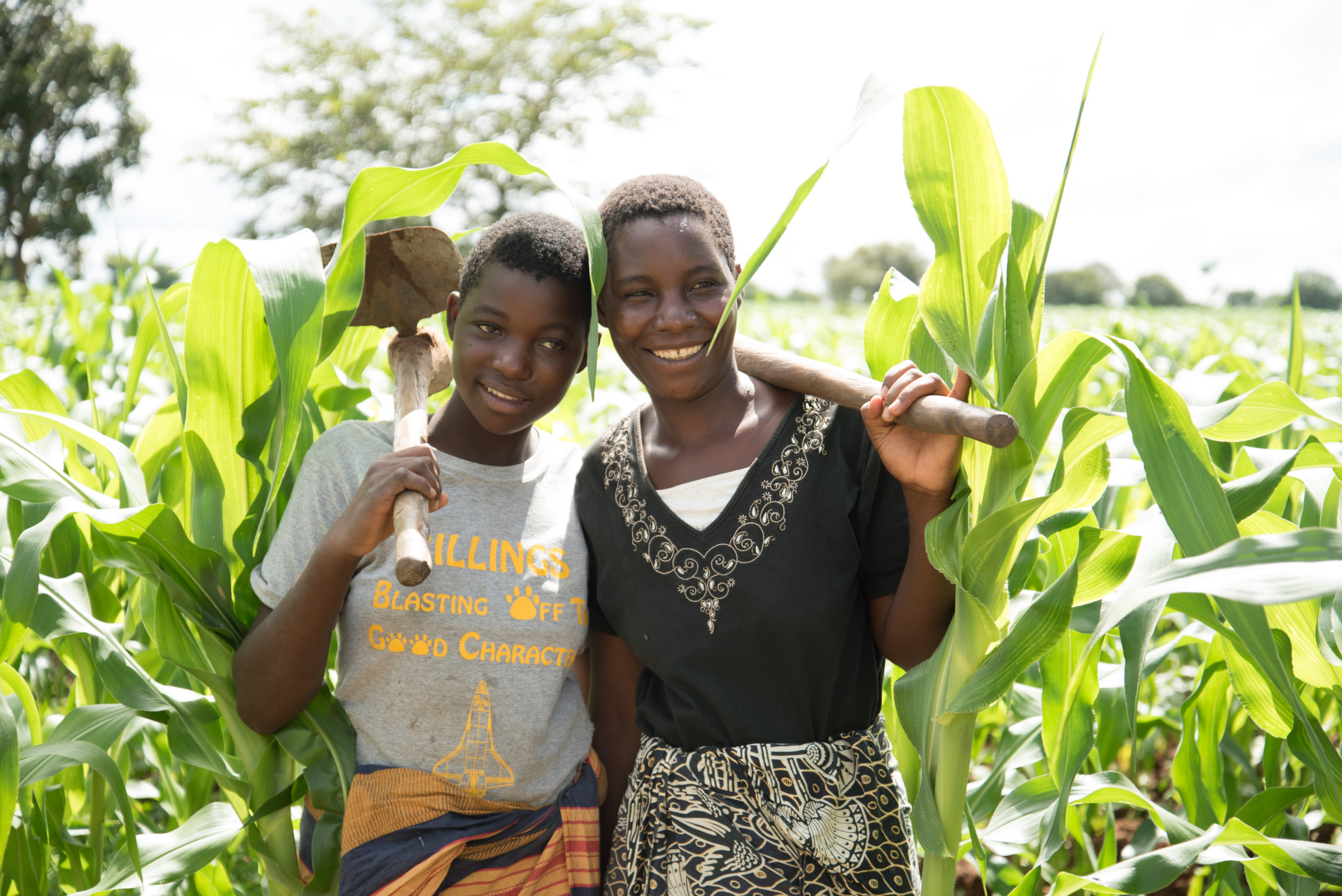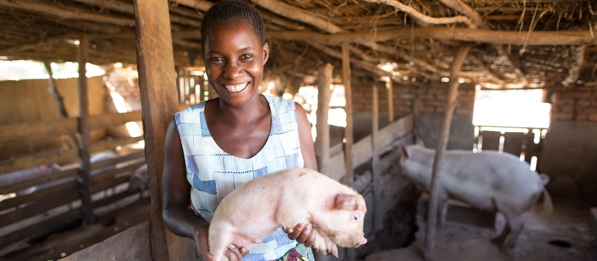This is the ninth post of Farming First’s #FillTheGap campaign to highlight the gender gap facing rural women working in agriculture.
Smallholders in Africa, more than anywhere else in the world, are at the mercy of a changing climate and environmental conditions, which can bring extreme weather and disease.
Only last year this harsh life-lesson was brought home dramatically to Ethel Khundi, 36, when her entire drove of pigs was killed by an outbreak of swine flu that wiped out hundreds of animals in the locality.
“Nearly everyone in the village lost their animals. It was a major setback,” she said.
Fortunately, Ethel, who farms a small plot in Whunachu village in central Malawi, was not entirely dependent on her animal rearing to earn an income.
By practising the conservation farming techniques that she learned on a Self Help Africa training course, she produced almost three times more maize than she had done a year earlier.
Her conservation agriculture planting, which involves zero tillage of land in her maize field, meant that moisture was not lost during the hot, dry season as the ground has not been ploughed completely, and individual maize plants have been grown in hand dug holes and covered with straw, to prevent evaporation.
The increased harvest offset some of her other losses, and helped keep her plan to extend her home and set up a small shop in the village on track.
Ethel also hopes that her 13-year old daughter Memory can finish school, and be able to fulfil her ambition of becoming a doctor. “I want her to follow her dreams,” she said.

Ethel Khundi with daughter Memory, Whunachu Village, Malawi. Photo by Hugh Chaloner/Self Help Africa.
Ethel’s husband, who is working in South Africa as a migrant labourer, has not been home for five years, and has not been able to send remittances back to the family for some time. She now hopes that the swine flu outbreak is a thing of the past and she can continue to build her family’s resilience.
She has already become an example within her community of how women farmers can be economically successful, can contribute to a better life for her children and her family, and be resilient and able to cope with unforeseen shocks – in this instance an outbreak of swine flu in the region.
For her part, she is planning to diversify what she grows next year by planting groundnut alongside her maize crop.
“I am thinking about the future,” she said. “When I harvest my groundnuts I want to set up a shop, and start trading goods in the village.”
For more stories of bridging the gender gap, visit Farming First’s Fill The Gap page or follow #FillTheGap on social media.



